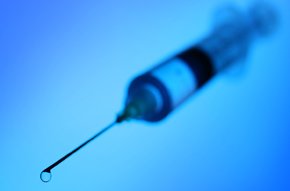AusSMC: Australia’s free human papillomavirus (HPV) vaccine program for young women has decreased the diagnosis of genital warts by 59 per cent in that age group.
 A University of New South Wales study published today in Lancet Infectious Diseases has found that men may have also benefited from this positive spin-off, with a decrease in genital wart diagnosis by 28 per cent in heterosexual males.The vaccination program which is in place to help prevent cervical cancer, was started in 2007 in females aged 12 to 26 years.
A University of New South Wales study published today in Lancet Infectious Diseases has found that men may have also benefited from this positive spin-off, with a decrease in genital wart diagnosis by 28 per cent in heterosexual males.The vaccination program which is in place to help prevent cervical cancer, was started in 2007 in females aged 12 to 26 years.
The research mirrors the results of a study carried out by Auckland Sexual Health Service which reported a significant decrease in the numbers of young women presenting with genital warts since the introduction of the HPV vaccine programme. They analysed results from a regional service covering the whole of Auckland with four clinics in Greenlane, Henderson, Glenfield and Mangere. Dr Jeannie Oliphant, lead researcher said: “The rates of new cases in women less than 20 years of age has more than halved.”
In Australia, the annual incidence of genital warts is about one per cent in young sexually active people. Human papillomavirus (HPV) types 6 and 11 cause up to 90 per cent of cases and are two of the four types of virus targeted by the HPV vaccine used in Australia.
In New Zealand the HPV vaccine Gardasil is available free to girls born after January 1, 1990 and is offered through participating schools or from family doctors, local health centres and some Family Planning clinics.
According to the Ministry of Health around 150 women are diagnosed with cervical cancer and 60 women die from it each year in New Zealand.
Professor Ian Frazer is from the Centre for Immunology and Cancer Research at University of Queensland, and the developer of the world’s first cervical cancer vaccine.
“Published data on HPV vaccination to date relates to the controlled circumstances of monitored randomised placebo controlled trials. This paper adds to our knowledge of the effectiveness of the HPV vaccines by providing direct evidence of field effectiveness of HPV vaccination for prevention of warts. It therefore allows inference of the effectiveness of vaccination for prevention of other HPV related disease including cervical cancer in an unselected general population.”
Dr Edith Weisberg is the Director of Research at the Sydney Centre for Reproductive Health at Family Planning, New South Wales.
“The dramatic rapid reduction in genital wart diagnosis in Australian young women following HPV vaccination will result in considerable reduction in health costs related to treatment and in personal distress caused by genital wart infections. It points to the likelihood of a possible equal reduction in high grade cervical lesions and ultimately cancer of the cervix in this cohort of vaccinated young women.”
Dr Kirsten McCaffery is a Senior Research Fellow of the Screening Test and Evaluation Program, School of Public Health, University of Sydney.
“This is a very encouraging finding. Research shows that genital warts can cause serious anxiety, distress and depression, and can significantly reduce psycho-sexual wellbeing and quality of life. Any intervention which can reduce the negative effects of genital warts is welcome and will make an important contribution to the sexual health of the nation.”